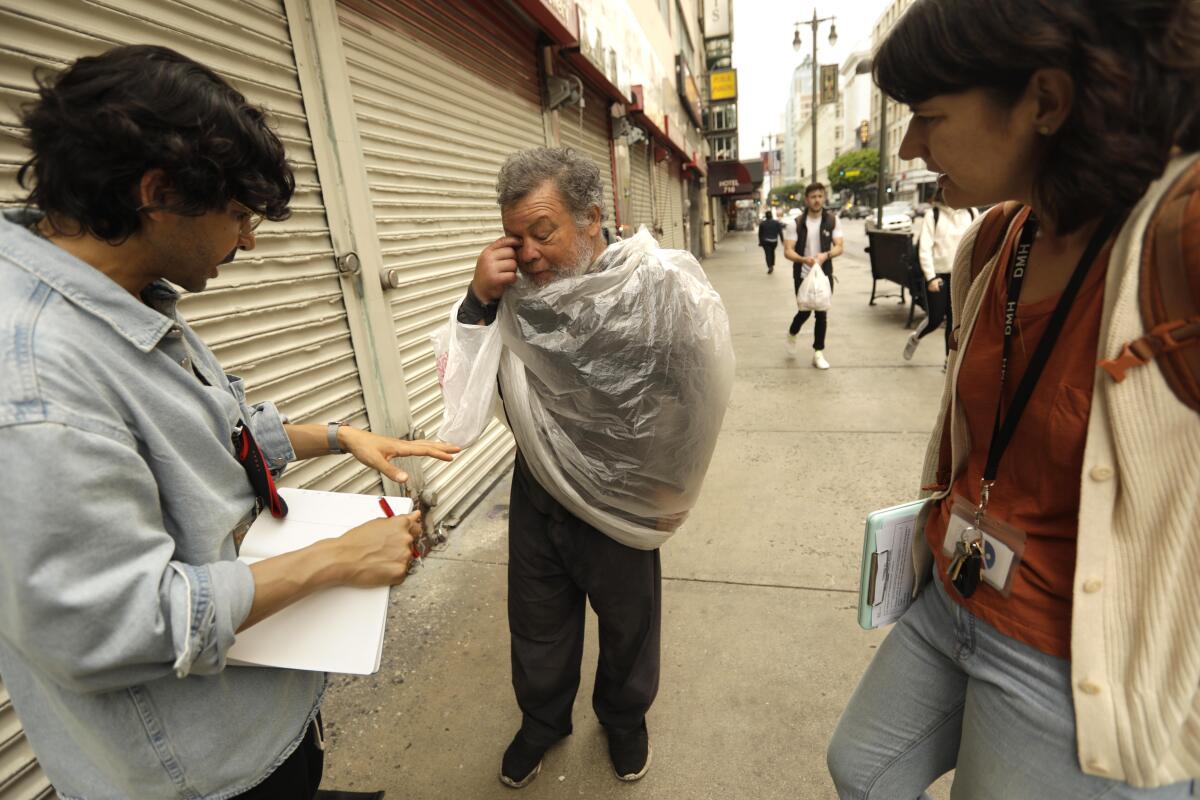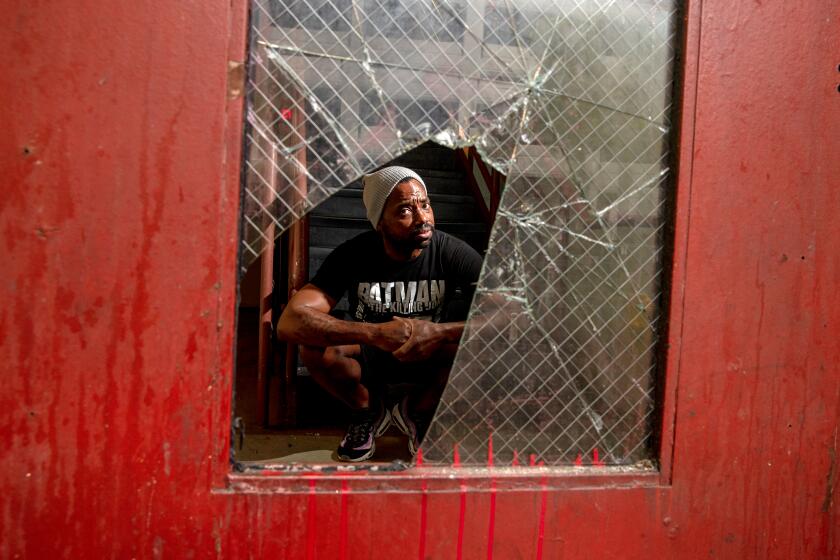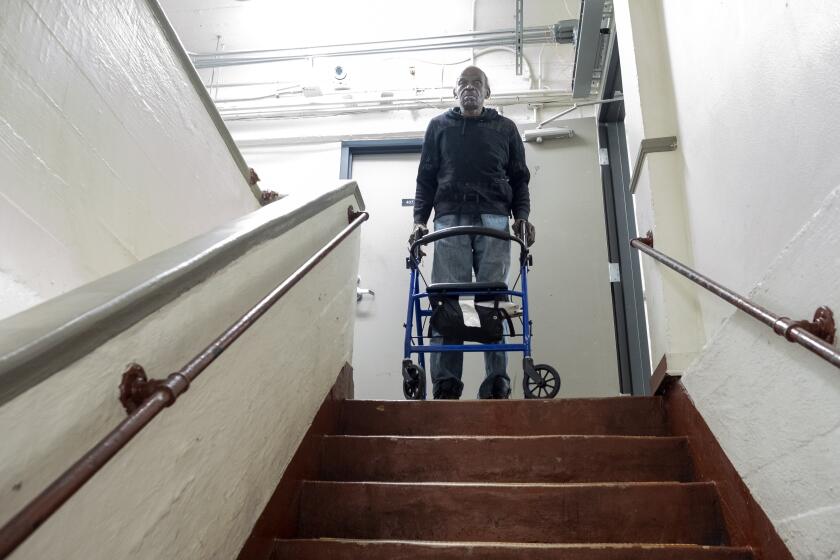Los Angeles County leaders announce revamped homeless settlement

- Share via
Months after a judge shot down their first attempt, Los Angeles County officials announced an agreement they hope will finally settle a long-running federal lawsuit over the region’s treatment of homeless people.
The agreement, announced Wednesday, would commit the county to provide 1,000 additional beds for people with mental health issues and substance use disorders.
County officials first announced a settlement in September that would have nearly doubled the number of outreach teams serving people with severe mental illness and added 300 substance use and mental health beds, among other investments aimed at helping the region’s most vulnerable residents. The agreement was expected to signal the end of a years-long legal battle with the Los Angeles Alliance for Human Rights, a coalition of downtown residents and business groups that sued both the city and county in March 2020 for failing to comprehensively address homelessness.
But U.S. District Judge David Carter refused to approve the agreement, saying the county had not offered enough beds for people who are mentally ill or have substance abuse problems and that there was no way to ensure the county would uphold its side of the settlement.
At a November hearing, he said the two sides “can do better.”
County leaders contend they’ve done just that.
The Skid Row Housing Trust was a model for nonprofits housing homeless people in Los Angeles. Behind the scenes, it was imploding — leaving tenants in squalor.
“This agreement shows we did and I hope Judge Carter agrees and signs off on this settlement,” said Board of Supervisors Chair Janice Hahn in a statement. “The County is committing to a significant increase in resources and we are happy to put this litigation behind us so we can devote our full attention to helping people and communities that need our assistance.”
According to the terms of the new agreement, the county has committed to providing an extra 700 new mental health and substance use disorder beds, bringing the total numbers of these types of beds to 1,000. The agreement would also require the county to make available 450 new subsidies for beds used primarily by people with severe mental illness who are at risk of homelessness.
The revised agreement specifies that the county would open 610 beds this year, 300 by June 30 and 310 more by Dec. 31. The remaining 390 would be spread over another two years.
Daniel Conway, a policy advisor with the alliance, said the increase in beds was a “meaningful improvement” but added he was uncertain what reception it would get from a judge.
“At the same time, it’s clear that we need thousands more,” he said. “And so we’re pleased with this progress, but once again, not sure how the court will react.”
Some homeless advocates who reviewed the agreement said they believed the county had once again come up short.
“This is the county trying to get off by doing virtually nothing,” said Andy Bales, chief executive of the Union Rescue Mission in skid row. “When I saw this document, I was so disappointed. This is not going to come close to solving the need.”
The AIDS Healthcare Foundation has spent tens of millions on pro-tenant causes. Yet elderly and disabled tenants at one of its buildings complain they have spent months at a time without a functioning elevator.
Bales said he had expected the revised settlement to provide as many as 3,000 new beds after Carter rejected the original settlement agreement, and Hahn and Supervisor Hilda Solis told the judge the county could do better.
Bales also objected to the phased rollout of the new beds over several years.
“You know the conditions on skid row,” he said. “We need the beds immediately. I’m hoping and praying the judge just rejects it and says, ‘We’re not going to let you off this easy.’ ”
The agreement comes after urging from Mayor Karen Bass, who has made homelessness a key priority, to rework the legal settlement and give the parties additional time to come to a resolution. The city of Los Angeles settled its portion of the lawsuit in April 2022, agreeing to add enough beds over the next five years to shelter more than half of the region’s homeless population.
Both Solis and Hahn credited the mayor for helping them craft the new agreement.
“This agreement means more beds and services for our unhoused residents, including those living on Skid Row in my district,” said Solis in a statement. “I look forward to working with the City of Los Angeles as we continue to implement strategies that we know will bring people indoors.
Judge Carter is expected to consider the agreement at a hearing Thursday.
More to Read
Sign up for Essential California
The most important California stories and recommendations in your inbox every morning.
You may occasionally receive promotional content from the Los Angeles Times.














